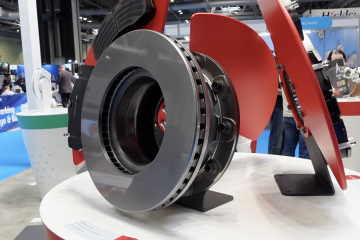
The European Union has agreed to extend the Brexit deadline to 31 October 2019, following a meeting of country leaders.
Britain was due to crash out of the EU without a deal on 12 April following a short extension to the original deadline of 29 March. However, following the meeting, the 27 member states have agreed on a flexible extension in order to allow the UK Government to get its withdrawal agreement through Parliament.
The UK’s Prime Minister Theresa May had been seeking a short extension to 30 June, which would allow the country to miss taking part in European Parliament elections, but EU President Jean-Claude Juncker instead proposed a year’s flexible delay. This, however, was not met with enthusiasm from some leaders, including French President Emmanuelle Macron, who was concerned that the UK could become a block to installing new EU commissioners, having ‘nothing to lose’.
Time commitment
President Juncker has suggested that the UK could leave before the deadline and has advised that the country ‘uses this time carefully’ to avoid another ‘cliff edge’ situation that would harm businesses and economies across the continent.
The automotive industry has met this sentiment. Commenting on the deadline extension, Mike Hawes, chief executive of the Society of Motor Manufacturers and Traders (SMMT), said: ‘While we’ve avoided a ‘no deal’ Brexit on Friday, it is utterly unacceptable that, more than two years since negotiations started, industry still does not know what the UK’s relationship with the EU will be in the coming weeks and months.’
‘Uncertainty has already caused serious damage – car plants are on enforced shutdown, investment has been cut and jobs lost. This cannot go on. Government and Parliament must use this extension purposefully to take ‘no deal’ off the table for good and guarantee a positive long-term resolution that delivers frictionless trade. If they fail, we face yet another devastating ‘no deal’ precipice on 31 October.’
Deadline issues
The missed 29 March deadline has caused a headache for some carmakers in the UK. Many planned to bring forward annual plant shutdowns to just after the date, to ensure any problems over supply of parts would not affect production. BMW Mini, Honda, Vauxhall and JLR were unable to change these plans at short notice and have begun their downtime. This is, therefore, preventing them from taking advantage of current free-trade conditions while leaving them susceptible to the problems they were trying to avoid.
Other manufacturers have also set aside considerable sums of money to establish ‘contingency funds’ that may have an impact on their quarterly financial results. Some have also suffered from poor sales due to the continued uncertainty. SMMT figures for March showed a 3.4% decline in new car registrations, during a ‘bellwether’ month for the industry in the UK.




You must be logged in to post a comment.